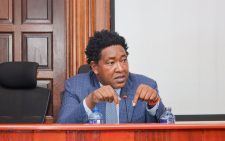MPs want Kenya Power stopped from further contracts with IPPS

Lawmakers want Kenya Power not to enter into new contracts with Independent Power Producers (IPPs) until the National Assembly makes a resolution on the matter. They say there is a need to regulate all IPPs in the country and publicise their locations, stakeholders, directors, management and their addresses and agreements entered into with Kenya Power.
While supporting a motion sponsored by Laikipia Woman Rep Jane Kagiri, the MPs also want the departmental committee on Energy to, within the next 120 days, undertake an inquiry into the operations of Kenya Power and submit a report to the house for deliberations.
They raised concerns that Kenya Power has in the past procured a larger quantity of power from the IPPs at a greater cost, and now wants them to purchase lower-cost power from Kenya Electricity Generating Company (KenGen).
“The Departmental Committee on Energy undertakes an inquiry into the operations of Kenya Power in relation to agreements entered into with IPPs, factors affecting the cost of electricity, including over-reliance on IPPs against available renewable and other energy sources, and measures to reduce it and submit a report to the House within one hundred and twenty (120) days,” reads the motion.
She added: “For Kenya to become globally competitive, KPLC must lower the cost of electricity. For our country to become an industrial hub but not just the Gateway to Africa, KPLC must lower the cost of electricity. For our country to become middle-income by the year 2030, KPLC must lower the cost of electricity.”
In the motion, Kagiri also demanded that, informed by reports of previous task forces on the matter, the ministry should engage in negotiations with power producers with a view to reducing the cost of power. She said that there is a need to put in place policies, strategies and regulatory measures for better planning to moderate the cost of electricity and enable access to energy by all particularly in the manufacturing sector to ease the cost of production and doing business. “The Ministry and Kenya Power develop suitable strategies for engagements with the IPPs, in order to provide relief for electricity consumers and ensure the long-term viability and sustainability of the energy sector,” she said
Electricity tariff
And added: “When we compare ourselves with our neighbours, Kenya’s electricity tariff remains very expensive. We pay Sh23 per unit in Kenya. Ugandans pay Sh20 per unit for electricity. Tanzanians pay Sh12 per unit for electricity.
Ethiopians are doing much better because they pay Sh6 per unit for electricity. Egyptians pay Sh3.75 per unit for electricity. This tells us that our country, Kenya, charges seven times the cost of electricity as compared to Egypt.”
Suba South MP Caroli Omondi regretted that the issue of power supply in Kenya is a classic case of State capture. He said: “The greatest problem that we face in Kenya today with respect to PPAs, is conflict of interest. The decision-makers who have been awarding these IPPs are the beneficial owners of the entities that have been given the contracts to supply power.”
Westlands MP Tim Wanyonyi said that the cost of electricity is proving to be too expensive and thus there is a need to invest in cheaper alternative energy because other countries have done it. “We are still relying on hydroelectricity which is the most expensive. Unless we start working on how to get alternatives, we will be doing a great disservice to this country,” he said.
Mwala MP Vincent Musau said the problem of high cost of electricity is not just about IPPs but is a well-calculated system of cartels who have managed to thrive in this business who have used all possible means to frustrate the process of getting affordable power.
“The cartel system is such that if IPPs were to switch off today, I guarantee you that we would not have power in the country – in as much as they supply us with very little power. They have refined the system to hold us hostage. How? We need to understand that power is not just about generation,” he said.












